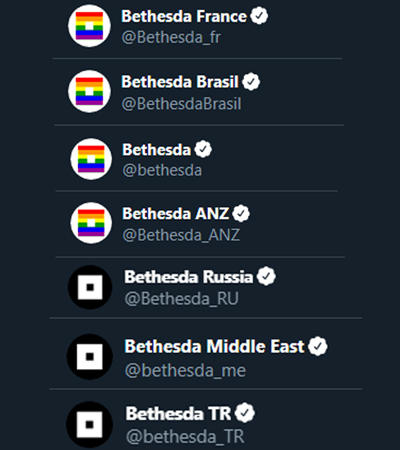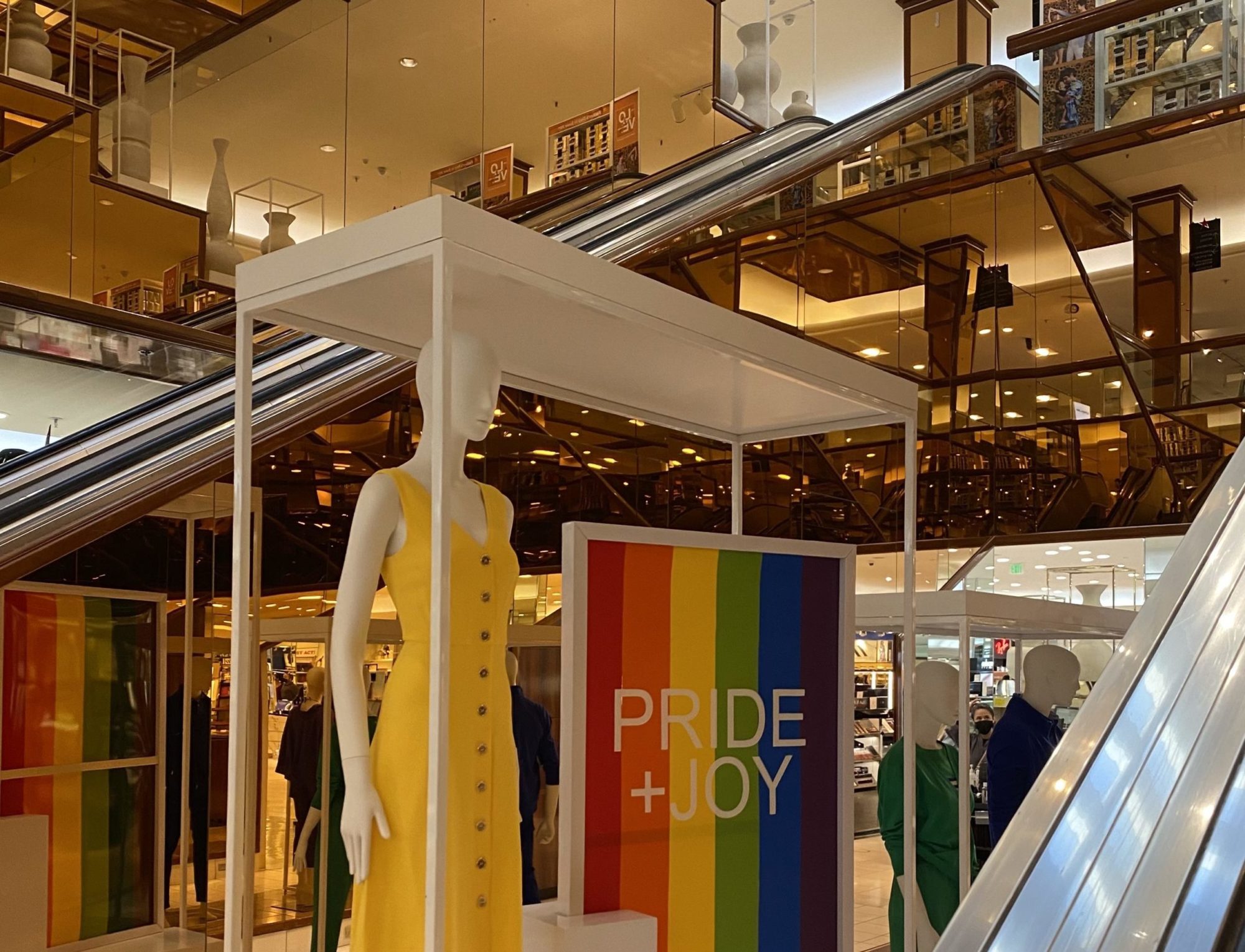Every year, during June pride month, stores and logos across the western world are dunked in rainbows. From Budlight’s rainbow beer bottles to McDonald’s rainbow fry containers, even the most mundane, apolitical corporations are pushing and shoving to get in on the “pride market.”
Evidently, pride is profitable. This fact shouldn’t be taken for granted. There was a time when this kind of rainbow-washing would’ve been unthinkable, when association with the LGBTQ community was to be desperately avoided. It’s no small thing that corporations are choosing to show support for the gay community. But that support is showing itself to be skin deep.
American companies are dogged by instances of so-called rainbow capitalism, which is when companies use rainbows or other virtue signals to show support for LGBTQ rights without actually implementing meaningful change or taking significant stances. Let’s focus on a few examples of companies whose outward rainbows belie their less than stellar policies—and ask how we can change pride culture for the better.
Gay Where Convenient
This year, the gaming company Bethesda came under fire for it’s Twitter logos. Rainbows abounded—but only where profitable. The logos for western accounts got the rainbow treatment, but the Russian, Turkish, and Middle Eastern accounts didn’t—three regions/countries with some of the most horrific human rights violations of LGBTQ individuals. In other words, the places where a rainbow logo would actually matter.

Bethesda’s virtue signaling isn’t an outlier. It’s common practice for global companies to pick and choose where they support LGBTQ people.
The Walt Disney Company is a perfect example of this phenomenon. Every year, they trot out a new “first openly LGBTQ character” to be in the back of their blockbusters for five seconds, to be quickly edited out for Chinese and Russian audiences.
Many corporations care about the LGBTQ community only as much as it takes to satisfy western consumers—they’re not about to risk their profits abroad. Companies can slap on rainbows wherever it’s profitable, and remove them in countries where being pro-LGBTQ would endanger their bottom line. This practice reveals their activism to be nothing more than a coat of paint. It’s nice, but doesn’t do much of anything.
Put Your Money Where Your Marketing Is
Everywhere you turn during pride, you see rainbows—especially in clothing stores. From Target’s rainbow they/them t-shirts to Nordstrom’s rainbow “gender is a social construct” bucket hats to Calvin Klein’s rainbow underwear line, the LGBTQ market is supersaturated. Every brand seems to be saying: We support you. Support us back!
Meanwhile, the story told by their labor practices is very different.
Brands like Fabletics and Nike have been called out time and time again for their unjust labor practices. The garment industry as a whole is rife with human rights violations, and the LGBTQ community is a vunerable group within the industry.
An investigation of a Salvadorian factory by the Workers Rights Consortium found rampant discrimination against queer workers including multiple firings of openly LGBTQ workers. Additionally, queer workers experienced frequent harassment. By one worker’s account, supervisors stated they had “visions” informing them that the worker was “a deviant and was ruining the [production] modules.”
Companies have argued that they can’t be held accountable for the practices of every one of their factories. But if companies want to ensure their clothing is made in factories that don’t discriminate against LGBTQ people, a great place to start is manufacturing in countries with LGBTQ discrimination protections.
Target has so much pride merchandise it’s become the go-to example of rainbow capitalism. And all those rainbow t-shirts splashed with messages of equality were likely made in one of Target’s 2,500+ factories in China, a country that offers no protection or recognition of LGBTQ individuals.
Gilbert Baker, the creator of the rainbow flag, once said that “China produces more rainbow flags than anyone. My nightmare is there is a factory with nearly slave labor, forced to live within the factory complex and get up every morning and have to churn out more and more rainbow [trinkets].” That nightmare has become a reality.
The purpose of the rainbow-washing is to convince queer consumers that their favorite corporation cares about their identity. But beneath the rainbow veneer, those corporations continue to endanger queer workers through where and how they choose to make their products.
The End of the Rainbow
It’s no surprise that the motives behind rainbow capitalism are less than scrupulous, or that many companies fail to live up to their LBGTQ-friendly messaging. Consumers looking to support the LGBTQ community must learn to look past marketing and decide for themselves which companies align with their values behind the scenes. Or better yet—we can take pride out of the hands of corporations.
The history of pride is an unsanctioned, dirty one. Corporate, mainstream support of the LGBTQ community is nothing to sneeze at. But it’s also not something to settle for.
The consequences of corporate involvement in pride go beyond the wave of rainbow merchandising. As pride parades fill up with corporate-sponsored floats and pride festival ticket prices soar (reaching up to $50 for NYC’s PrideFest VIP Tickets), queer people are finding themselves priced out of pride. LGBTQ people, especially POC, are significantly more likely to live in poverty than straight people. When pride is an expensive, exclusive party, the people who are left out are the people who need pride the most.
And that’s not where the slippery slope stops. Corporate involvement in pride and the reduction of pride to a simple rainbow, turns pride into a commodity. It allows consumers to supplant rainbow goodies for activism and introspection.
Corporations are never going to be perfect, because profit has to be their priority. But informed, conscientious consumers can help make follow-through profitable. They can use the power of their dollar to support companies that meet their values and keep their promises. Yet even with the most earnest consumers, it’s high time we reevaluate the role of corporations in pride celebrations.
This June, show your pride or your allyship in ways that aren’t buying rainbows:
Donate:
The Black Trans Advocacy Coalition
Read/Watch:
The Death and Life of Marsha P. Johnson
Matt Shepard is a Friend of Mine
Do I Sound Gay?
Mala Mala
How Do I Look? (Bad Object Choices)
- Migrant Farmworkers: How Can You Get Involved? - November 30, 2021
- Migrant Farmworkers: Up Close and Personal - November 15, 2021
- Who Are Migrant Farm Workers, and What Do They Face? - November 8, 2021
